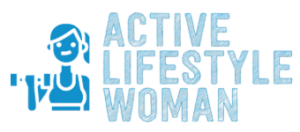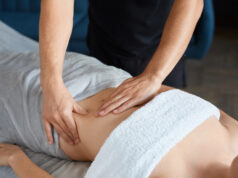How do you know if you’re over-cleansing your face? Check for these four signs to see if you should cut back on the scrubbing.
Cleansing your face is arguably the most important step of the skincare routine. But how much is too much when it comes to this essential radiant skin step?
Believe it or not, there is too much of a good thing when it comes to washing your face.
Many people don’t know how to properly cleanse their face—whether that takes the form of over-cleansing, using the wrong products, or just not cleansing at all. Today, we’re tackling over-cleansing and the biggest signs that you may be washing your face too much.
1. Your Skin Feels Taut

One of the biggest misconceptions in skincare is that your skin should feel taut and tight once you’re done cleansing your skin with a face cleanser. But this slippery, squeaky clean (and frankly, uncomfortable) feeling doesn’t translate to effectiveness in washing your face. It might mean that you’re damaging your skin by using too drying or rough products. The best cleansers should be specially selected for your skin type and will leave your skin feeling refreshed rather than raw but still clean.
Double cleansing is a great way to achieve that refreshed clean without overdrying on your skin. The best double cleanse will hydrate and balance the skin and remove any dirt, excess oil, and makeup while still leaving your skin feeling clean (and not oily). The trick is using an oil-based cleanser, and a water-based cleanser. Also, make sure that the water you’re using to wash your face isn’t too hot because that could also leave your skin feeling taut. Double cleansing can also target other skin issues, including acne and dry skin.
2. You’re Starting To Develop Rashes
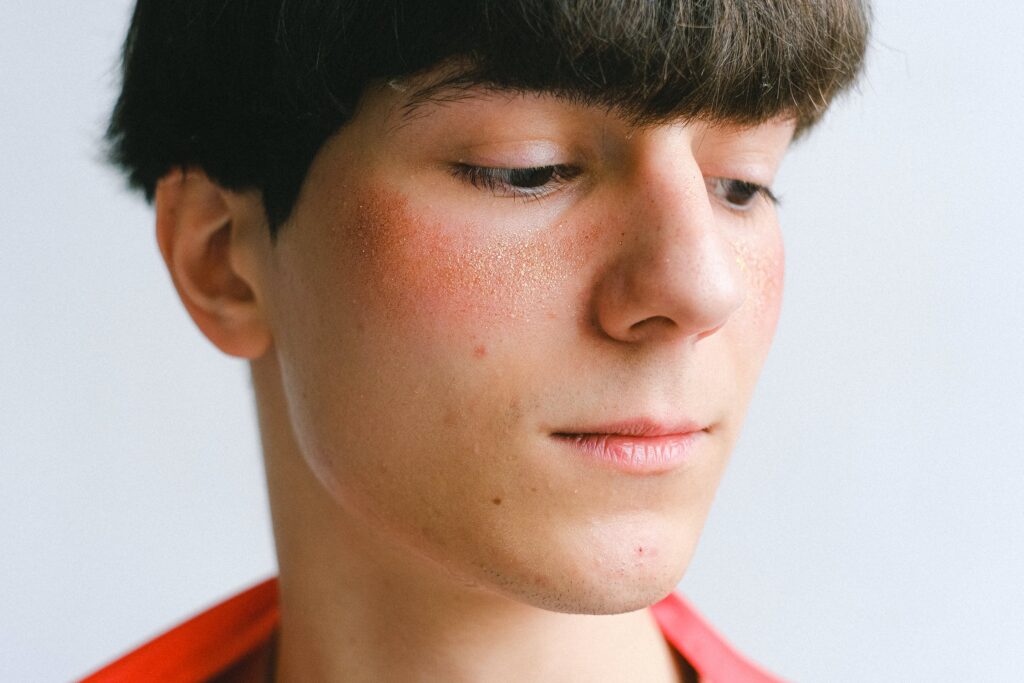
You might be thinking to yourself, well, that taut feeling isn’t the worst thing in the world, so why should I change my routine just because of it? But that taut feeling is a sign that you’re stripping the skin of its natural essential oils and damaging the skin barrier by over-cleansing. If your skin barrier is compromised, it means that products that ordinarily sit on top of the skin can now permeate the skin.
Products like sunscreen, which sit on top of the skin to protect it, can cause rashes and allergic reactions should they get past the top layer. A damaged skin barrier can also lead to other, worse symptoms, including eczema, acne, and opening your skin up to other environmental irritants like UV rays and pollution.
What’s the best way to come back from a compromised skin barrier? Substitute the things that were once lost. Try products packed with ceramides, and use hyaluronic acid and niacinamide to help spur lipid reproduction in the skin. Already have rashes? Try the Olivarrier Comfort Barrier Cream. Formulated for sensitive and acne-prone skin, this luxurious cream will calm your skin, wrapping it in hydration and leaving your skin feeling plump and soothed all day long.
3. You’re Getting Adult Acne
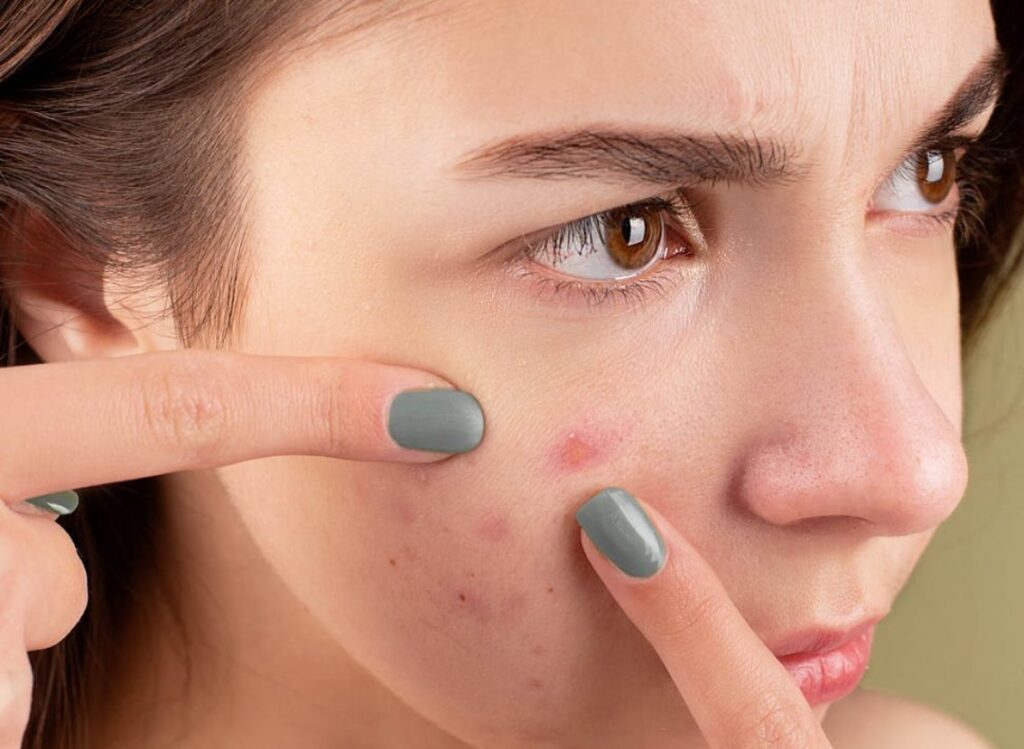
Over-cleansing strips your skin of its natural essential oils, causing your oil production to go into overdrive, giving you acne. If you’re getting a ton of breakouts and you don’t know where they’re coming from, there’s a chance that it’s from over-cleansing. One of the most overlooked acne treatments is hydration and moisturizing. Not only does it keep your skin looking and feeling plump, glowy, and dewy, but it could be the end to your acne woes. So, if you are breaking out randomly, your cleansing habits (shock horror) could be the culprit.
One of the best products to combat adult acne is the Thera Cream. This cream is a great way to replenish the skin’s moisture and lock it in without clogging your pores with excess oil. It’s also lightweight, with a gel consistency, and is packed with bamboo extract to heal acne wounds and leave you feeling hydrated but not overwhelmed with the product.
4. You’re Starting To See Seborrheic Dermatitis
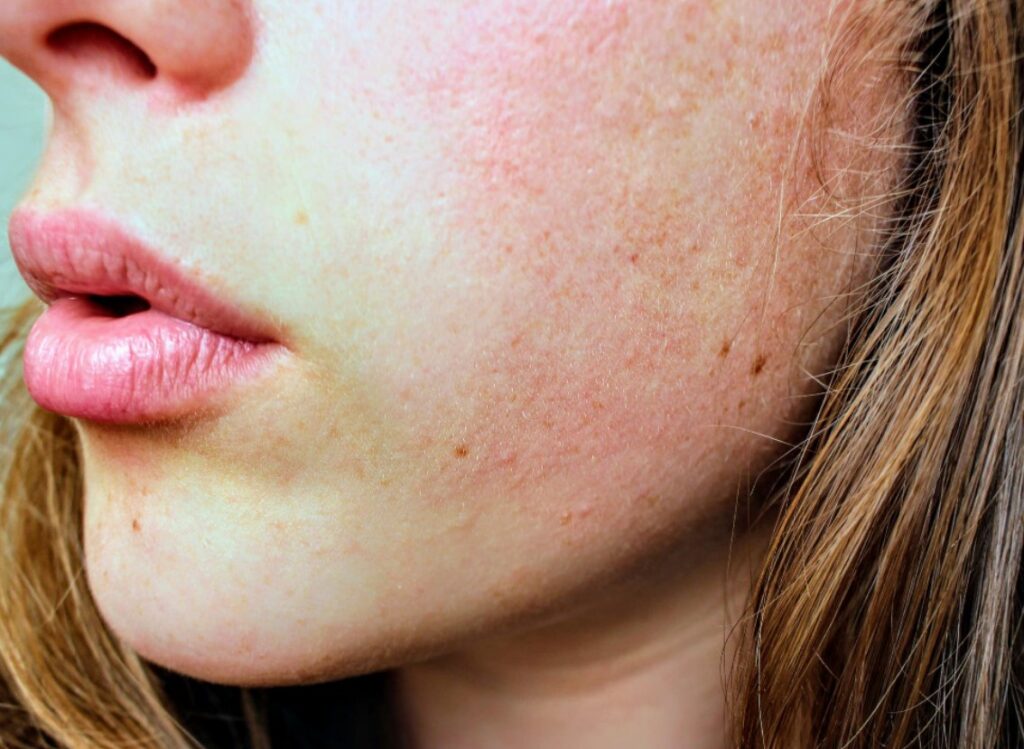
Seborrheic dermatitis is most often noted by flaking red scales on the T-zone. This common skin disease can often manifest itself as a rash, with redness, a swollen or greasy appearance and white or yellow flaking of the skin. Often, it will also itch. This condition can come and go many times throughout adult life but is also treatable for adults. This skin condition looks similar to psoriasis, eczema, or allergic reaction and should be diagnosed by a dermatologist since all four conditions should be treated differently. Dermatologists can also prescribe short term medicines to treat flare-ups and barrier repair creams to prevent infection, reduce uncomfortability, and remove scales.
So, How Much Should You Be Cleansing?
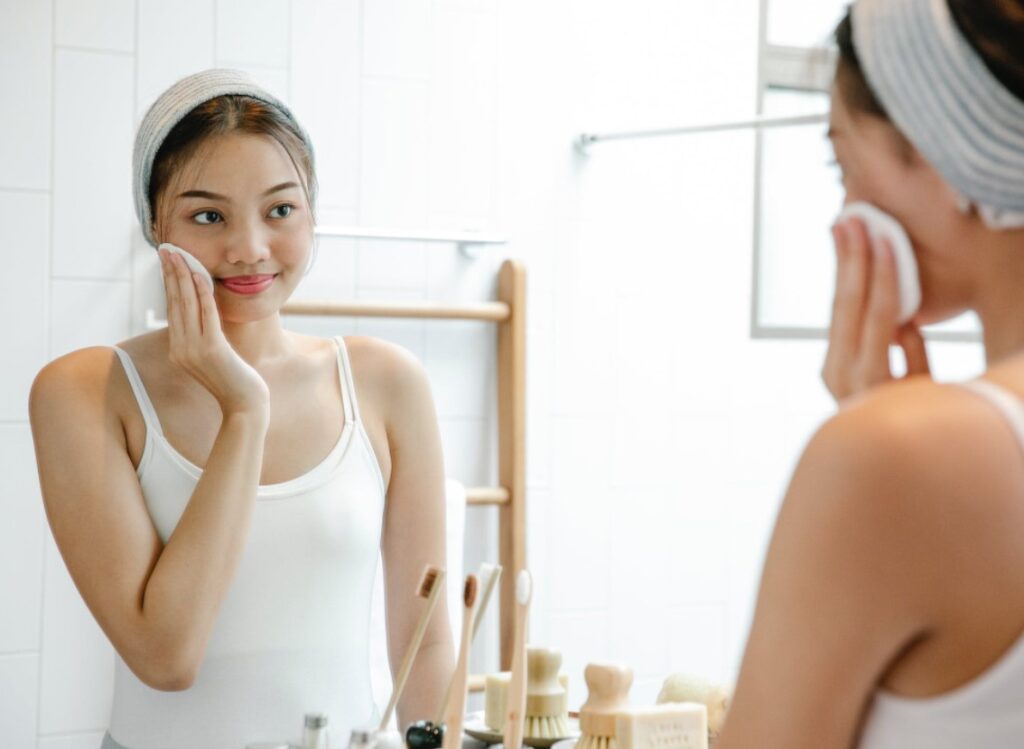
The American Academy of Dermatology recommends limiting your face washing to twice per day, once in the morning and once in the evening, and after sweating heavily. Sweat can irritate the skin, so it’s important to wash your skin as soon as possible after sweating heavily, especially if you are wearing a hat or helmet.
Double cleanse your face with warm (not hot) water, using gentle, non-abrasive cleansers.
It’s important also to choose your cleansers based on products that fit your skin type. If your skin tends to dry out, stay away from alcohol. Use your fingers to apply your cleansers, massaging (don’t scrub) the face in upward circular motions. Using your fingers is better than using a washcloth or mesh sponge because these abrasive materials can irritate the skin. Rinse and follow up with the rest of your routine, and don’t forge moisturizer.
The Bottom Line
Over-cleansing is an easy mistake with serious consequences and one that can be corrected. Knowing the signs of over-cleansing your face and how to cleanse properly is the first and best step you can take toward clear, glowing skin.
